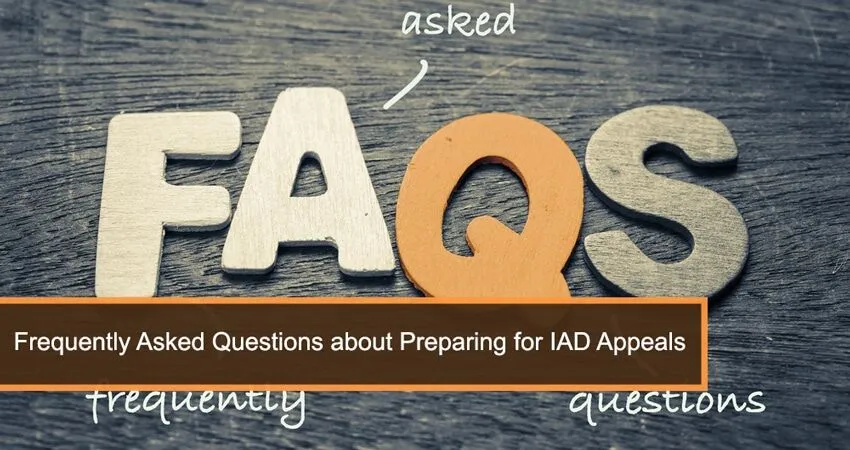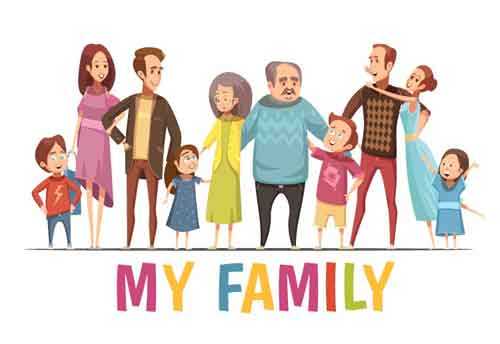Financial Requirement to Sponsor a Family Member to Canada as Permanent Residents
Low-Income Cut-Off Requirements for Permanent Residence
Applying to sponsor a family member for permanent residence under the Family Class requires the sponsor to meet certain conditions. The sponsor must:
- Be a Canadian citizen or permanent resident
- Be over 18 years of age at the time of application
- Not be convicted of a violent crime, any offence against a relative or any sexual offence
- Not in prison
- Agree to an undertaking in writing
- Meet set income guidelines
It is the final 2 conditions that we are going to focus in this article. The article will be organized into 2 main sections: Undertaking and Form IMM 1283 (Financial Evaluation).
Family Class Sponsorship: Undertaking
What is it?
A financial undertaking is a written agreement from the sponsor that he or she will financially support the sponsored relative. This is a binding contract in which the sponsor agrees to support the sponsored person with basic requirements and expenses related to:
- Food
- Shelter
- Clothing
- Utilities
- Household items
The undertaking is taken very seriously. For example, if the sponsored person receives social assistance from the Canadian government during the period of the agreed undertaking, the sponsor will be required to pay that money back to the government.
Duration
The length of the undertaking depends on what type of family member is being sponsored:
- Spouse, Common-Law or Conjugal Partner
- For this group of the Family Class, the undertaking starts on the date the sponsored person becomes a permanent resident. The undertaking will be 3 years in length.
- Dependent Child of Sponsor, or of Sponsor’s Spouse, Common-Law or Conjugal Partner
- If the child is under 22 years old at the date of becoming a permanent resident, the length of the undertaking will be 10 years or age 25 (whichever one comes first). The undertaking begins the day the child becomes a permanent resident.
- If the child is over 22 years old at the date of becoming a permanent resident, the length of the undertaking will be 3 years. The undertaking begins the day the child becomes a permanent resident.
- Other Family Members (Parents, Grandparents, Dependent Children of Sponsor’s Parents)
- For this group of the Family Class, the undertaking starts on the date the sponsored person becomes a permanent resident. The undertaking will be 20 years in length.
The duration of undertakings is fixed by immigration law and is non-negotiable. Also, if a sponsored spouse, common-law, or conjugal partner can prove that their sponsor has failed to meet the conditions of the undertaking, he or she may be able to separate from their sponsor and still remain a permanent resident.
Form IMM 1283 (Financial Evaluation)
For many types of permanent residence applications under the Family Class, the sponsor will be required to fill out Financial Evaluation Form IMM 1283. This is one of the forms provided by Citizenship and Immigration Canada and can be found here. Read on to find out more specific information about this important form.
Who needs to fill it out?
The financial evaluation form is not required for those sponsoring:
- A spouse, common-law, or conjugal partner who has no family members
- A spouse, common-law, or conjugal partner with dependent children who have no dependent children of their own
- The sponsor’s child who has no children of their own
Other than these 3 groups, the financial evaluation form will be a part of a permanent residence application under the Family Class.
Co-Signers
In some cases, the sponsor alone may not be able to meet the financial requirements outlined in the financial evaluation form. There is an option to include the spouse or common-law partner of the sponsor as a co-signer. By pooling their resources, a sponsor and co-signer may be able to meet the minimum requirements of the financial evaluation. There should only be a co-signer if the sponsor can’t meet the minimum requirements. Otherwise, it is not necessary to have a co-signer on a permanent residence application.
There are important consequences that should be considered by anyone agreeing to be a sponsor’s co-signer. The length of undertaking will be the same for the co-signer. If the sponsor is unable to fulfill the financial support duties of the undertaking, the co-signer will be required to take on the full support role. This includes repaying any social assistance collected from the government by the sponsored person.
If the sponsor’s spouse or common-law partner is going to be a co-signer, he or she must complete question 1. B) as well as questions 15 to 19 of the financial evaluation form.
Low Income Cut-Off (LICO)
Questions 7, 8, and 9 of the financial evaluation form deal with the minimum financial requirement required of the sponsor (and co-signer if applicable). Question 7 asks for the total number of people dependent on the sponsor. This section of the form often confuses applicants. Who is considered to be dependent on the sponsor? The number of dependents is also referred to in some immigration documentation as the size of the family unit. Possible dependents or members of the family unit could be:
- The sponsor’s immediate family members, whether living with them or not
- For example, a sponsor’s spouse, common-law partner, or dependent children
- The person the sponsor is sponsoring as well as his or her family members
- For example, the sponsor is sponsoring his son who is also married
- Any person the sponsor is still responsible for from a previous undertaking
Question 8 asks the sponsor to determine the minimum necessary income required to fulfill the financial requirements of the undertaking. At this point, the sponsor should reference the Low Income Cut-Off chart to determine what the minimum necessary income is for the size of their family unit (the number determined in question 7).
The Low Income Cut-Off chart is published every year by Citizenship and Immigration Canada and can be found on their website. The chart is adjusted yearly to account for things like inflation and changes in the cost of living index. The Low Income Cut-Off chart for 2016 is provided below (retrieved from: www.cic.gc.ca):
Low Income Cut-Off (2016)
| Size of Family Unit | Minimum Necessary Income |
| 1 person (the sponsor) | $24,328 |
| 2 people | $30,286 |
| 3 people | $37,234 |
| 4 people | $45,206 |
| 5 people | $51,272 |
| 6 people | $57,826 |
| 7 people | $64,381 |
| More than 7 people, for each additional person, add | $6,555 |
So let’s say that a sponsor is a widower (his previous wife passed away several years ago) and has 2 young children from that marriage. In addition, his elderly mother is living with him as well. He has decided to sponsor his spouse from Australia to become a Canadian permanent resident. In this case, the size of the family unit would be: the sponsor + his 2 children + his elderly mother + his spouse. Therefore, the total size of the family unit would be 5. As a result, the sponsor would have to meet the minimum income requirement of $51,272. This is the number that he would put as the answer for question 8 of the financial evaluation form.
Keep in mind that for Parent and Grandparent sponsorship applications have a separate Low Income Cut-Off chart. The parent and grandparent chart has higher minimum necessary income levels than the chart displayed above.
Showing Available Income
Pages 3 to 9 of the financial evaluation form request information about the sponsor’s (and co-signer’s, if applicable) income. The amounts and sources of income that the sponsor has must be entered in these sections of the form.
The sources of income covered in the form are:
- Income from employment
- Income from a business or self-employment
- Rental income
- Investment income
- Pension income
- Maternity, parental or sickness benefits (paid under the Employment Insurance Act)
- Any other income
This income is taken from the preceding 12 months, but for a Parent or Grandparent sponsorship, it is taken from the preceding 3 years. The financial evaluation form also request specific information from the sponsor’s Notice of Assessment provided by the Canada Revenue Agency. This Notice of Assessment shows income levels for the previous tax year.
Naturally, it is not enough to simply enter income numbers on the form. This will also need to be accompanied by supporting documentation that proves that these income numbers are legitimate. Documents that can help prove a sponsor’s or co-sponsor’s income may include:
- A copy of a Notice of Assessment
- A signed letter of employment
- Recent record of paystubs
- A corporate tax return
- T4 or T1 slips
- Bank statements
- Statements of investments, property ownership, rental income, etc.
Contact Akrami and Associates
As you can see, the financial undertaking required of a sponsor or co-sponsor makes up a very important part of a permanent residence application under the Family Class. If a sponsor wants their application to be successful, he or she should ensure that the financial evaluation form is accurate and provide a complete set of supporting documentation.
Keep in mind that this is only one part of a much larger application. If you would like professional assistance in assembling your permanent resident sponsorship application, contact our legal team today. Our group of Canadian immigration lawyers and consultants have the experience and knowledge to help you assemble the best possible application.
With Akrami and Associates there is always a way!!
Latest Immigrations News

April 1, 2024
Sponsorship Appeal
Sponsorship Appeal If your family member's application for a permanent residence visa was denied after sponsorship, you have the option to appeal to the Immigration Appeal Division (IAD). This appeal allows you to present arguments as to why the visa application should be approved, commonly referred to as [...]

December 21, 2020
All About Family Class Sponsorship
All About Family Class Sponsorship Are you a Canadian citizen or a permanent resident of Canada with family in another country and looking for options to all live together in Canada? Family reunification is very important to Canadians and the Canadian Government. This is where family class sponsorship [...]

July 23, 2020
Sponsoring Under the Family Class
Family Class Sponsorship The Canadian government values keeping families together, and therefore prioritizes family class sponsorship applications. You can sponsor certain relatives living abroad to immigrate to Canada if you meet the mandatory requirements. Generally, the requirements are more relaxed than the economic routes. How Family Class Sponsorship [...]

Book a Conslutation
One of our Representatives will
assist you with your matter. Book Now!
Click here

Call us for
more Information
+1-416-477-2545
Toll Free: 1-877-820-7121
Click here

Write Us (Online Form)
Complete our form and one of our
Representatives will contact you.
Click here
Subscribe To Our Newsletter





